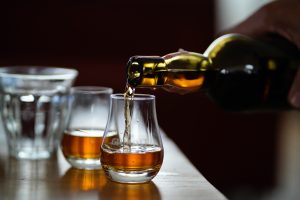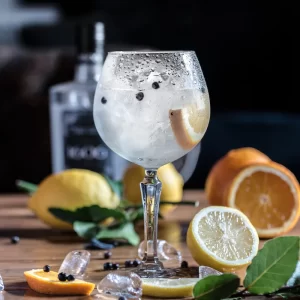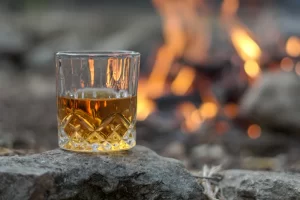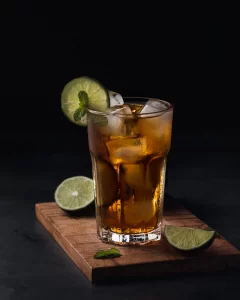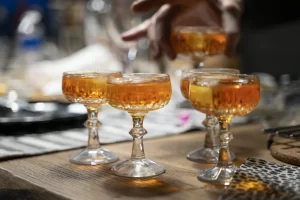American Beverage Licensees
Bar owners, bartenders, suppliers, liquor store owners, and anyone who is selling alcohol has to know about the American Beverage Licensees. This association is the mother of all state-licensed beverage retail associations.
However, if you are new to trading alcoholic beverages then you may not know who they are or what they can do for you. In this article, we explain everything you need to know about the American Beverage Licensee, including who they are, what they do, and how they can help you.
Let’s dive in!
Who Are The American Beverage Licensees?
In 2002, the National Association of Beverage Retailers and the National Licensed Beverage Association merged and became the American Beverage Licensees. They are located in Maryland. The ABL is a registered nonprofit trade association meaning they do not profit from the funding they receive.
The leading national trade organization for owners of retail beverage alcohol licenses in the US is called American Beverage Licensees. Members of ABL include both in-store (such as bars, taverns, restaurants, and casinos) and out-of-store (such as package stores) businesses.
The majority of these stores are set up through state-licensed beverage retail associations, which are affiliate members of ABL.
Basically, if you are selling alcoholic beverages, these guys need to know about it.
What Do The American Beverage Licensees Do?
Before Congress and on a national level, ABL concentrates on the interests of beverage alcohol retailers. ABL also offers a network that unifies the retail sector of the beverage alcohol industry and acknowledges that while state alcohol regulations vary, they are not always incompatible with one another.
Thanks in large part to its dedicated members and the support of other industry associations, ABL has remained a voice for the beverage alcohol industry’s retail sector.
Who Do The ABL Represent?
The beverage companies that ABL represents operate on Main Streets in local communities all over the nation. Several ABL members run multi-generational family enterprises, ensuring the consumption and sale of alcoholic beverages responsibly.
They have a crucial role in representing the hospitality sector and encouraging responsibility because they are the last to handle beer, wine, and spirits before they reach consumers.
The American Beverage Licensees also works with wholesalers, suppliers, importers, legislative initiatives, strategic communications, and industry unity. They cover everyone when it comes to the sale and use of alcoholic beverages.
What Is A Beverage Licensee?
An individual or organization that has received a license from a state agency to sell beer, wine, and/or spirits to customers who are of legal drinking age is known as a beverage licensee.
Beverage licensees are the final people to handle beverage alcoholic goods before they reach the consumer within the Three-Tier System of producers, distributors, and retailers, and they provide the public with a long-lasting impression of the industry. The majority of ABL members are independently owned businesses that serve their neighborhoods.
Members Of The American Beverage Licensees
As mentioned above, the American Beverage Licensees is the mother association for all of the beverage licensees across the United States. Each state is considered an affiliate member.
However, the association does have other types of members, including associate members.
American retailers of beer, wine, and spirits are supported by ABL’s Associate members. They support and defend beverage licensees and their companies, and ABL counts them as partners in its mission to remain a dynamic and ever-evolving trade association.
Members Of The American Beverage Licensees Are
- Bulldog Americas Corporation.
- Royal Crown Bottling Corporation.
- Pepsi-Americas Inc.
How To Become A Member Of The American Beverage Licensees
If you are currently the owner of licensed premises or intend to become a trader of alcoholic beverages then you are most certainly going to want to become a member of the American Beverage Licensees. But how do you do that?
The majority of the members of the ABL are automatically members through the Affiliate Member Program. Once you sign up for your state beverage license association, you become a member of the ABL.
However, the American Beverage Licensees also have an At-Large Membership Program which is available if you meet the following criteria:
- Own a retail alcohol license in a state that does not have its own LBA,
- Own a retail alcohol license in a state that does have an LBA but is not a member of the American Beverage Licensees.
Legal Authority Of ABL
The American Beverage Licensees focus on the interests of beverage alcohol retailers. This is in both a Congress and a national setting. While the American Beverage Licensees can provide support to the individual retailer or the state, they do not have any legal authority.
They provide information and resources for their members to ensure they are following the laws of their state and the nation but they have no legal authority of their own.
Frequently Asked Questions
How Much Is An ABL Membership?
The American Beverage Licensees work on an annual membership. If your state does not have an LBA or is not a member, you can expect fees of around $2500 for a Diamond membership or as low as $25 for an Affiliate Membership.
What Is The Three-Tier System?
Congress passed the Federal Alcohol Administration Act on December 5, 1933, the day after Prohibition was repealed (FAA Act). As a result of this act, several state laws that established a “Three-Tier System” for the manufacturing, distribution, and sale of alcohol were adopted.
The 21st Amendment’s state-based alcohol control system has developed, and ABL is dedicated to maintaining its integrity.
Final Thoughts
As you can see, American Beverage Licensees have a rather large presence in the alcoholic beverage industry. They are there to ensure you remain on track with state and national laws concerning the trading of alcoholic beverages.
If you are interested in opening your own bar, restaurant, or even liquor store, you must ensure you are registered with the ABL.
We hope you find everything you need in this article to be safe and law-abiding when it comes to the trading of alcoholic beverages!
